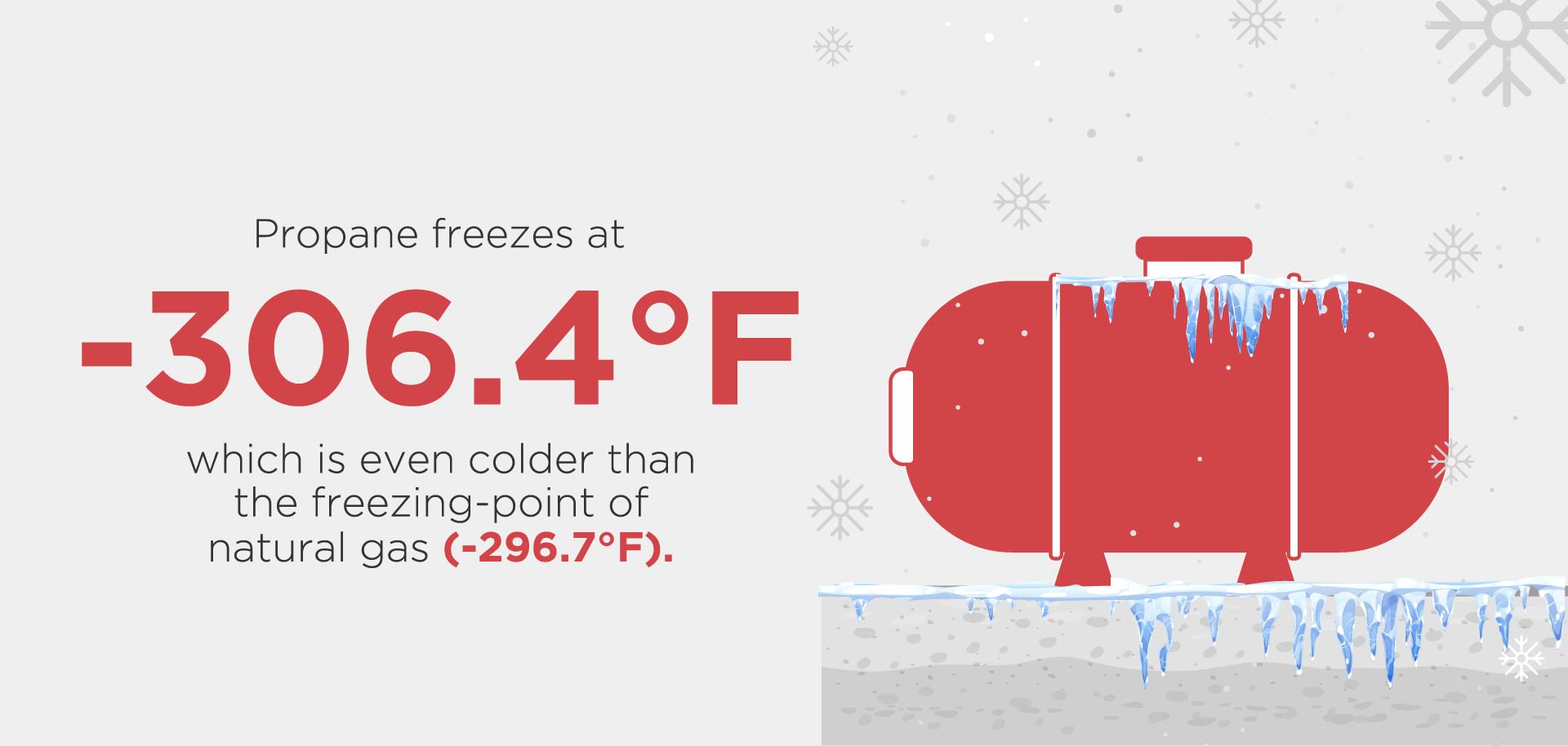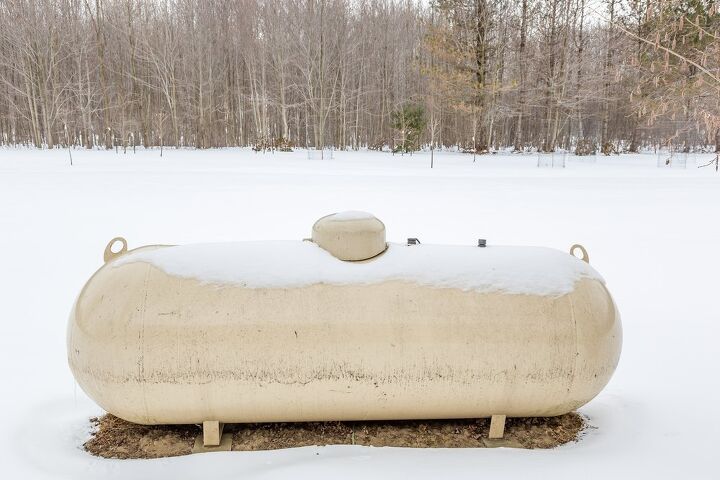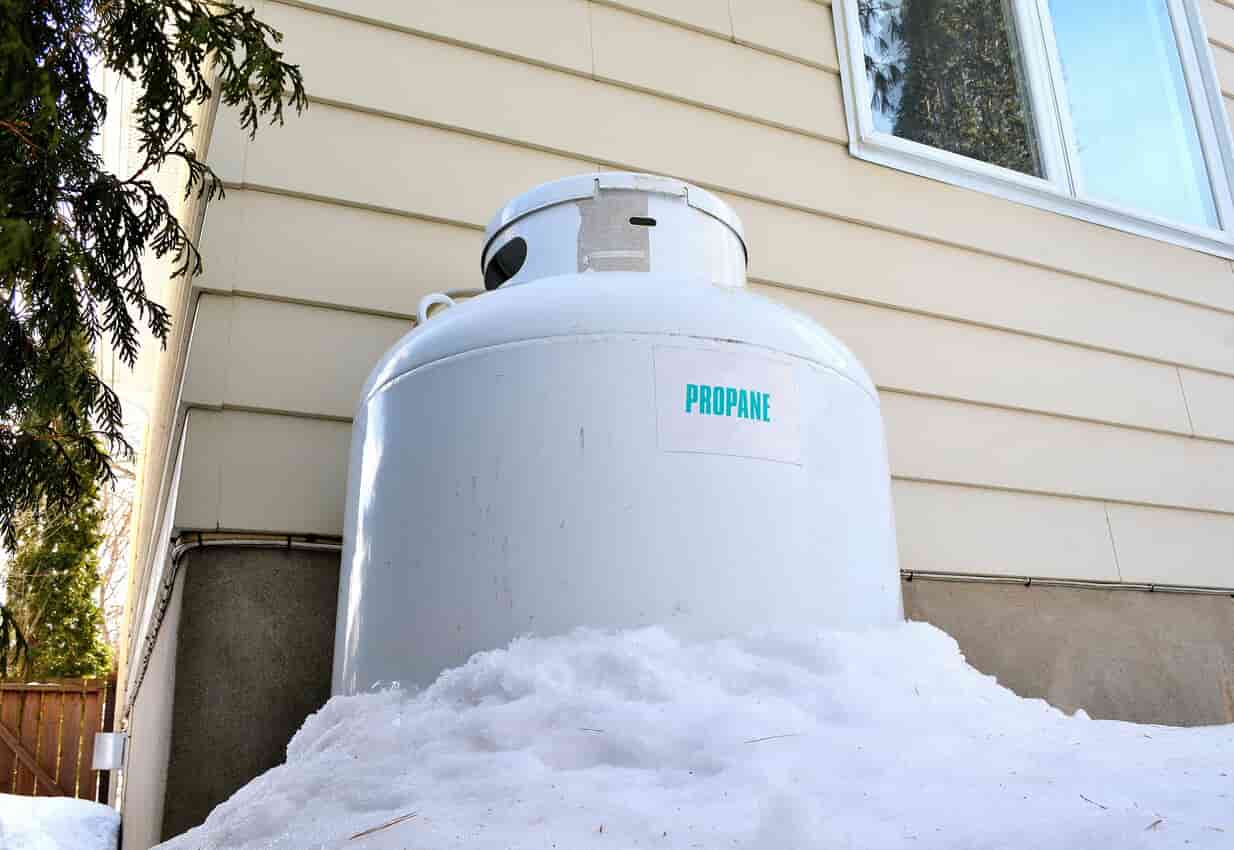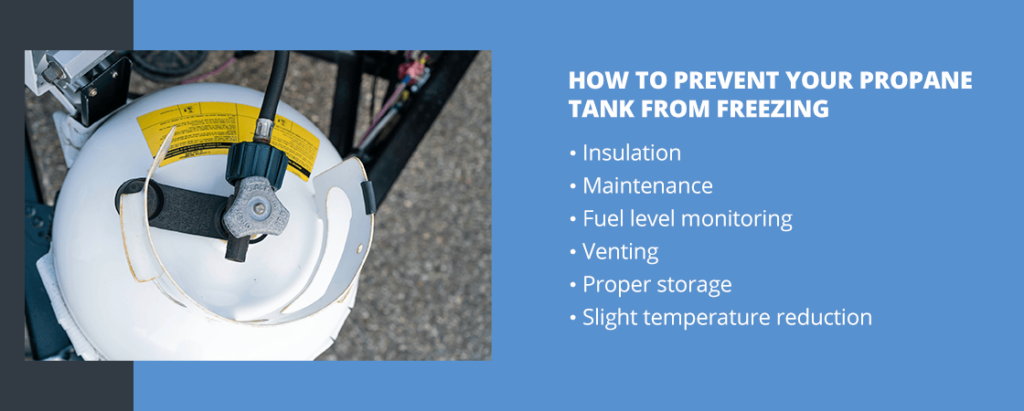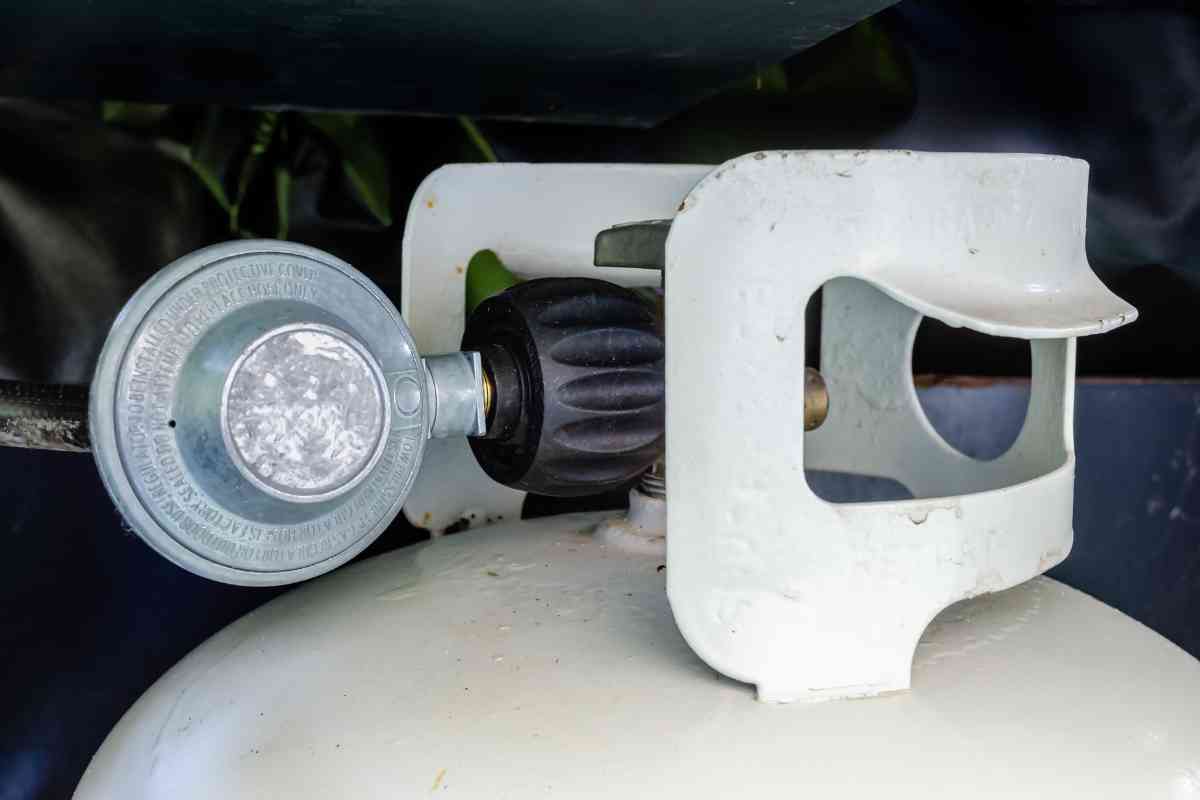Why Would A Propane Tank Freeze

Propane, a versatile and efficient fuel source, is a popular choice for heating homes, powering appliances, and even running vehicles. However, a common concern among propane users, especially during colder months, is the potential for their propane tank to freeze. While it might seem alarming, understanding why this happens and how to prevent it is crucial for maintaining a safe and reliable propane system. This article will delve into the causes of propane tank freezing, explain how to identify it, and provide practical solutions to keep your system running smoothly.
Understanding Propane and Vaporization
Before we tackle the freezing issue, it's important to understand how propane works. Propane, or LP gas (Liquefied Petroleum gas), exists as a liquid when stored under pressure inside your tank. When you turn on your furnace, water heater, or other propane-fueled appliance, the liquid propane vaporizes into a gas. This vaporization process draws heat from the surrounding environment. It's this heat absorption that plays a key role in why a propane tank might freeze.
Why Propane Tanks Freeze: The Science Behind It
The primary reason a propane tank freezes is due to the rapid vaporization of liquid propane. As propane converts from a liquid to a gas, it absorbs heat from the tank and the surrounding air. In situations where the demand for propane is high, such as during periods of heavy heating use, the rate of vaporization increases dramatically. This increased heat absorption can cause the tank's temperature to drop significantly, potentially reaching freezing point (32°F or 0°C) or even lower. When the tank and its components become cold enough, moisture in the air can condense and freeze on the surface, creating a layer of ice. This ice, while visually concerning, is a symptom of the underlying issue: excessive cooling due to vaporization.
Factors Contributing to Propane Tank Freezing:
- High Propane Usage: As mentioned, increased demand for propane, especially during cold weather, is the most common culprit. Running multiple appliances simultaneously, such as a furnace, water heater, and propane fireplace, puts a heavy load on the tank.
- Low Ambient Temperatures: Extremely cold outside temperatures exacerbate the problem. The colder the surrounding air, the more heat the propane vaporization process draws from the tank itself, further accelerating the cooling effect.
- Low Propane Levels: A nearly empty propane tank is more susceptible to freezing. With less liquid propane available to absorb heat, the remaining liquid vaporizes more quickly, leading to a faster temperature drop. Think of it like a swimming pool: a pool filled to the brim will retain heat longer than a pool only partially filled.
- Tank Size: Smaller tanks are more prone to freezing than larger tanks. Larger tanks have a greater surface area and volume, allowing for more efficient heat absorption from the environment.
- Inadequate Tank Insulation or Protection: A lack of proper insulation or protection from the elements can further contribute to heat loss and increase the risk of freezing.
Identifying a Frozen Propane Tank
Recognizing the signs of a frozen propane tank is crucial for taking prompt action and preventing further issues.
- Visible Ice or Frost: The most obvious sign is the presence of ice or frost on the exterior of the tank, particularly around the regulator and valves.
- Reduced Propane Pressure: A frozen tank can lead to a drop in propane pressure, resulting in appliances not functioning correctly or shutting down completely. You may notice a weaker flame in your gas stove or your furnace struggling to maintain temperature.
- Hissing Sound: A hissing sound coming from the tank or regulator might indicate that the propane is struggling to vaporize properly due to the cold temperatures.
- Unusual Odor: While propane itself is odorless, a chemical odorant called mercaptan is added to make leaks detectable. If you notice a stronger-than-usual propane odor, it could indicate a problem with the tank or regulator due to the freezing conditions. If you smell propane, evacuate the area immediately and call your propane supplier or the fire department.
Preventing Propane Tank Freezing: Practical Solutions
Fortunately, there are several steps you can take to prevent your propane tank from freezing and ensure a reliable fuel supply.
- Maintain Adequate Propane Levels: Keep your tank at least 20-30% full, especially during the winter months. This ensures a sufficient amount of liquid propane is available for vaporization and reduces the risk of rapid temperature drops. Schedule regular propane deliveries to avoid running low.
- Use a Larger Propane Tank: If you frequently experience freezing issues, consider upgrading to a larger propane tank. A larger tank offers greater surface area and volume, allowing for better heat absorption from the environment and reducing the likelihood of freezing.
- Insulate the Propane Tank: While completely covering a propane tank isn't recommended (as it can hinder natural heat absorption), you can provide some insulation around the regulator and exposed pipes. Specially designed tank blankets or insulating wraps are available for this purpose.
- Shelter the Tank from Wind: Wind can accelerate heat loss from the tank. Shielding the tank from strong winds using a windbreak, such as a fence or shrubs, can help maintain a more stable temperature.
- Monitor Propane Usage: Be mindful of your propane consumption and avoid running multiple appliances simultaneously for extended periods, especially during extremely cold weather. Consider using alternative heating sources, such as electric space heaters (used safely), to reduce the load on your propane system.
- Install a Vaporizer (for high-demand applications): For applications with exceptionally high propane demand, such as commercial heating or industrial processes, consider installing a propane vaporizer. A vaporizer is a device that uses electricity or another heat source to convert liquid propane into gas, ensuring a consistent and reliable gas supply even under heavy load.
- Regular Maintenance: Schedule regular inspections and maintenance of your propane system by a qualified technician. This includes checking for leaks, inspecting the regulator, and ensuring proper ventilation around the tank.
What to Do If Your Propane Tank Freezes
If you discover that your propane tank has frozen, it's important to take appropriate action. Never use an open flame to thaw a frozen propane tank or regulator. This is extremely dangerous and could lead to a fire or explosion.
- Contact Your Propane Supplier: The safest and most effective solution is to contact your propane supplier. They have the expertise and equipment to safely thaw the tank and address any underlying issues.
- Use Warm Water (with Caution): If you choose to thaw the tank yourself, use warm (not hot) water to gently pour over the regulator and any iced-up connections. Avoid pouring water directly onto the tank itself, as this can cause thermal shock. Ensure the water isn't scalding hot, as this can damage the components.
- Increase Air Circulation: Remove any snow or ice buildup around the tank to improve air circulation.
- Wait for Natural Thawing: If the weather is expected to warm up soon, you can simply wait for the tank to thaw naturally. However, avoid using any artificial heat sources to speed up the process.
Propane Tank Maintenance: A Year-Round Task
While freezing is a common concern during winter, propane tank maintenance should be a year-round task. Regular inspections and maintenance can help prevent a variety of issues, including leaks, corrosion, and regulator problems.
- Inspect for Leaks Regularly: Use a soapy water solution to check for leaks around the tank, regulator, and connections. If you see bubbles forming, it indicates a leak.
- Keep the Area Clear: Maintain a clear area around the tank, free from weeds, brush, and other debris. This ensures proper ventilation and prevents potential fire hazards.
- Protect from Corrosion: Inspect the tank for signs of corrosion, such as rust or pitting. If you notice any corrosion, contact your propane supplier for advice.
- Schedule Professional Inspections: Have your propane system professionally inspected at least once a year. A qualified technician can identify potential problems and ensure that your system is operating safely and efficiently.
The Bottom Line: Staying Proactive with Propane
While a frozen propane tank can be a frustrating and potentially dangerous situation, understanding the causes and taking preventative measures can significantly reduce the risk. By maintaining adequate propane levels, using a suitable tank size, providing adequate insulation, and scheduling regular maintenance, you can ensure a reliable and safe propane supply for your home or business. Remember, if you suspect a frozen propane tank, prioritize safety and contact your propane supplier for assistance. By staying proactive and informed, you can enjoy the benefits of propane without the worry of freezing issues.
When comparing propane to other heating options like natural gas or oil, consider the following. Propane is a highly efficient fuel, but requires tank maintenance. Natural gas offers consistent delivery through pipelines, eliminating the need for tank management, but isn't available in all areas. Oil heating is a less efficient option, and requires oil tank maintenance. The choice depends on location, cost, and personal preferences.
